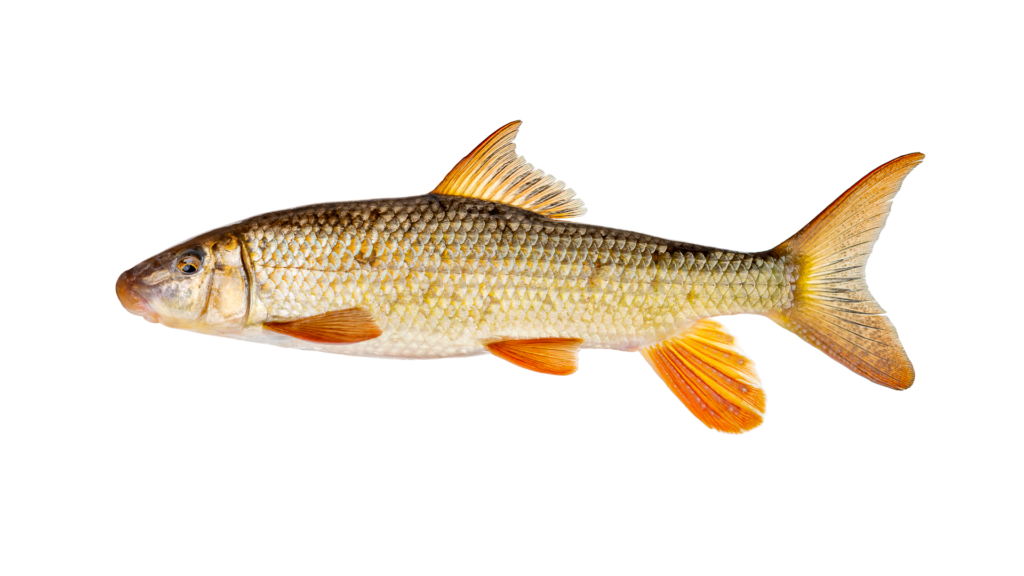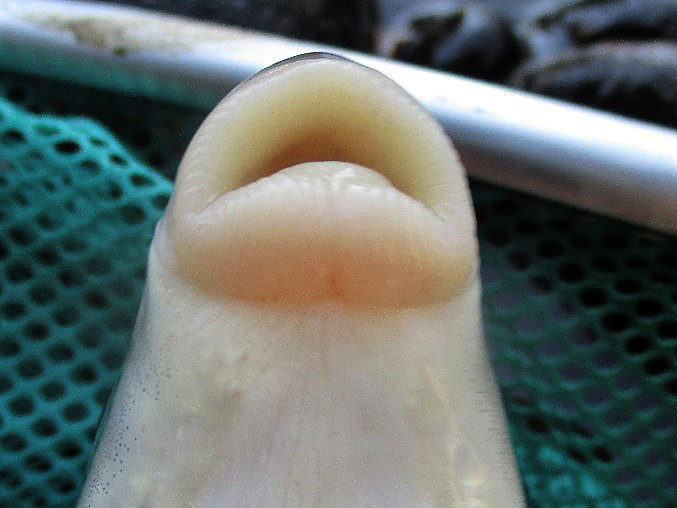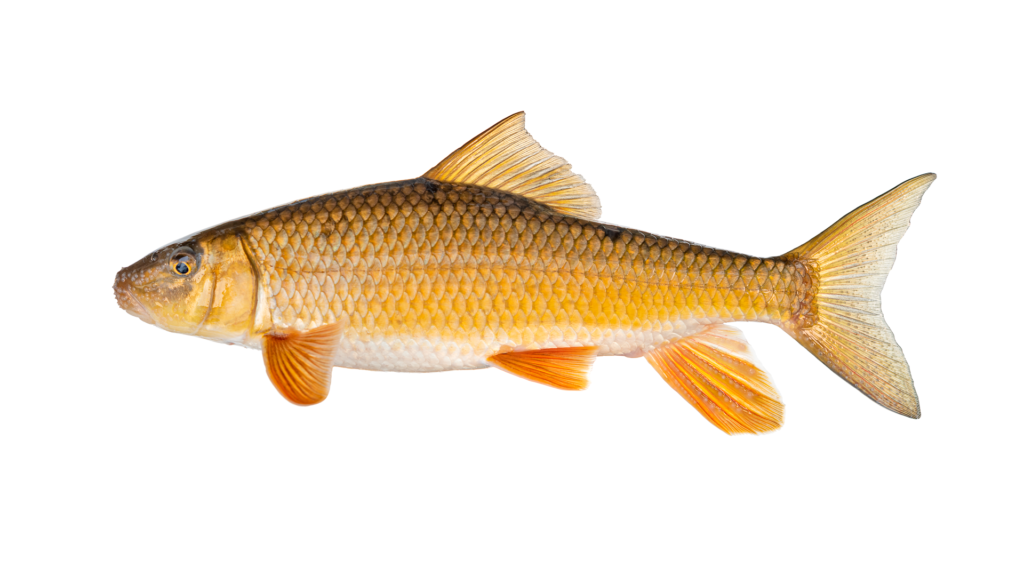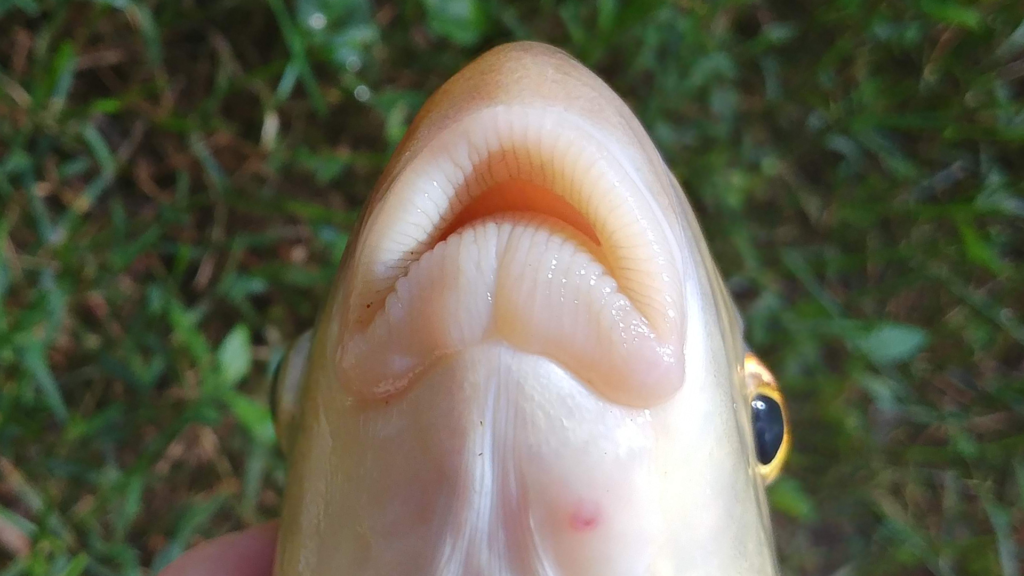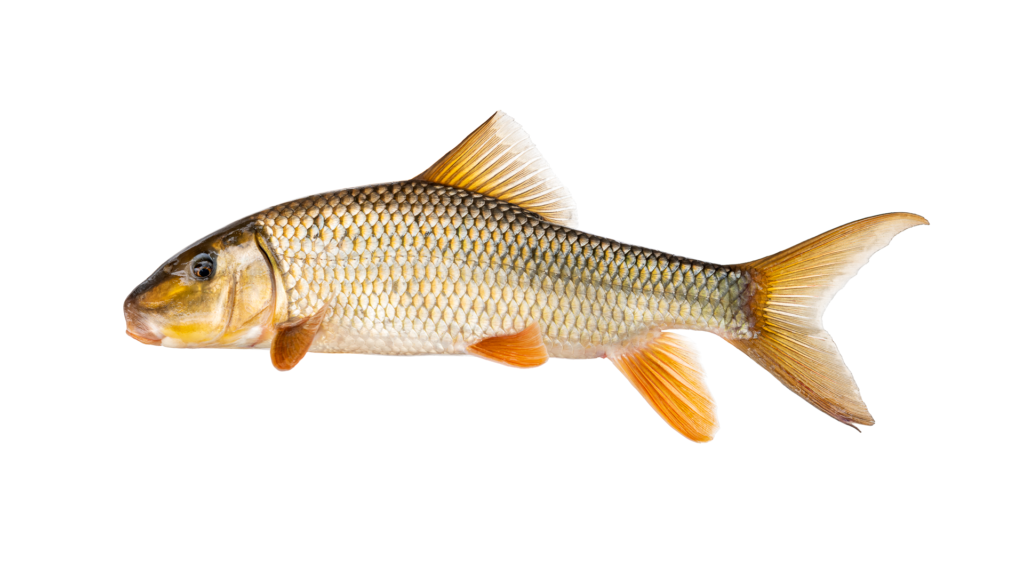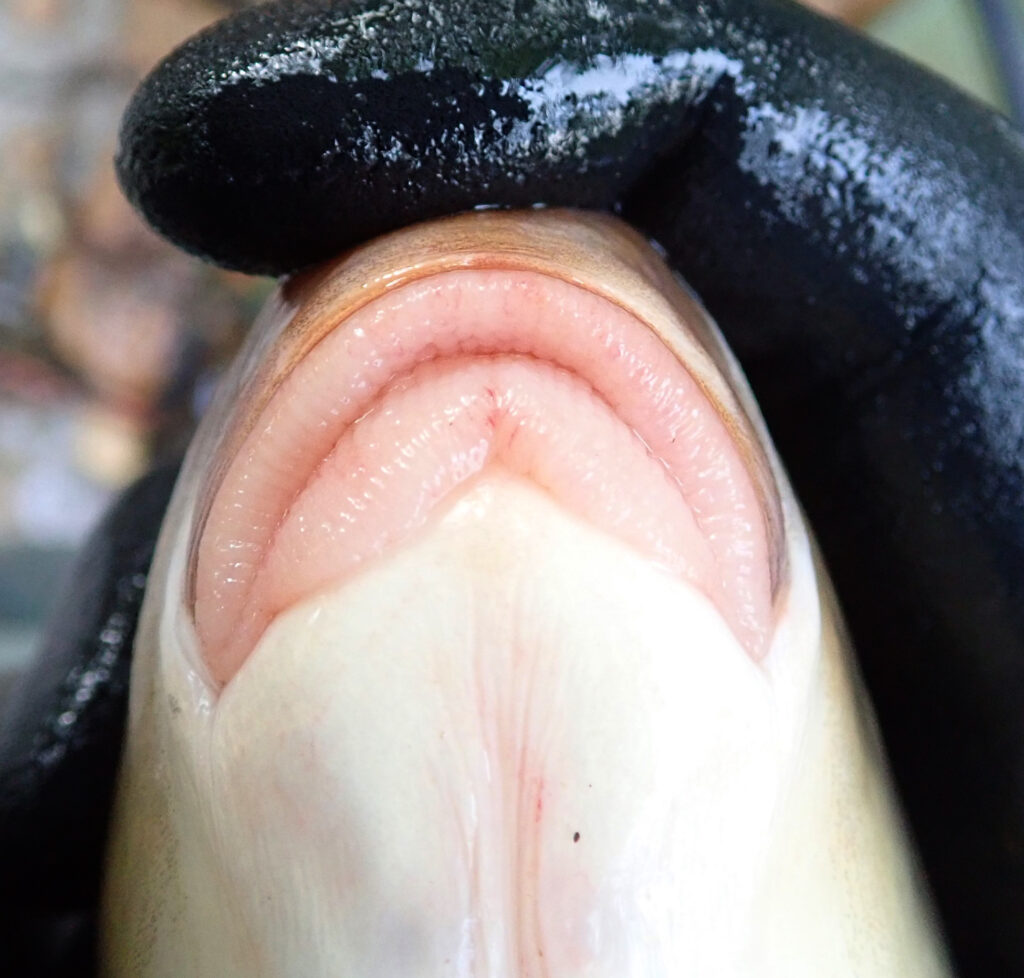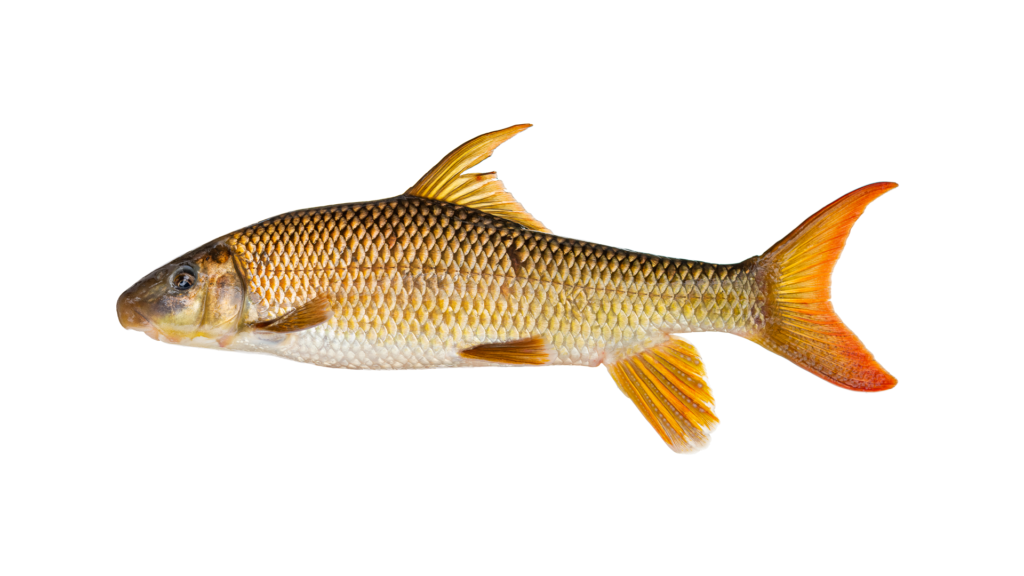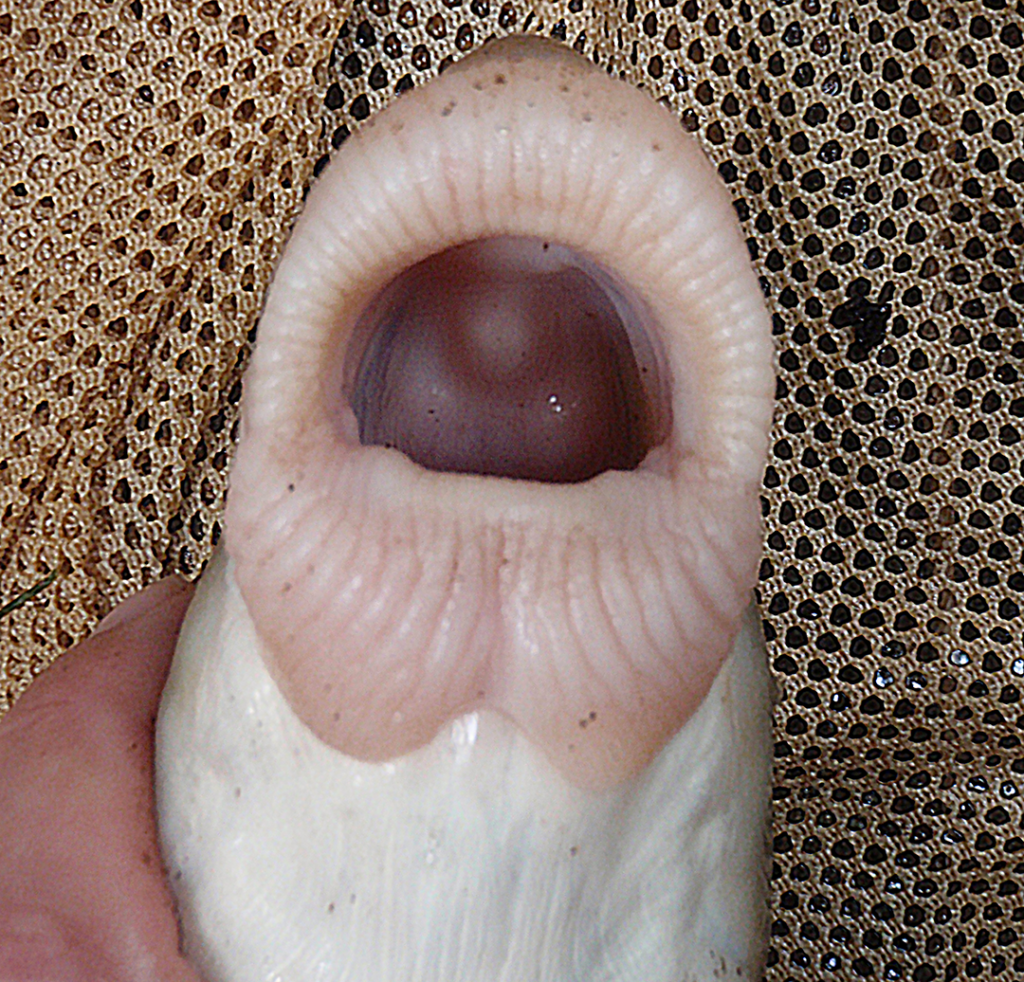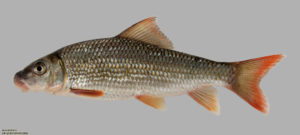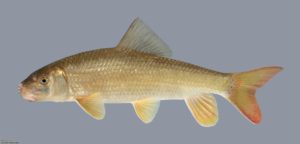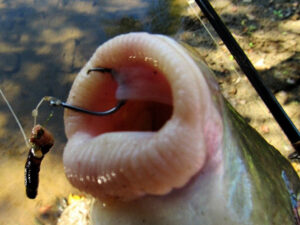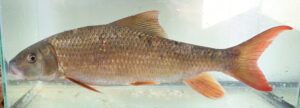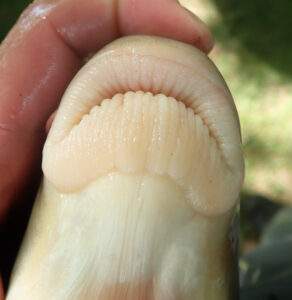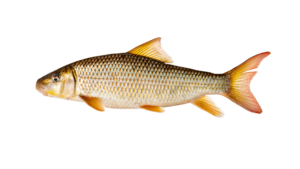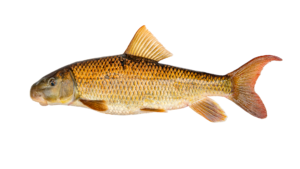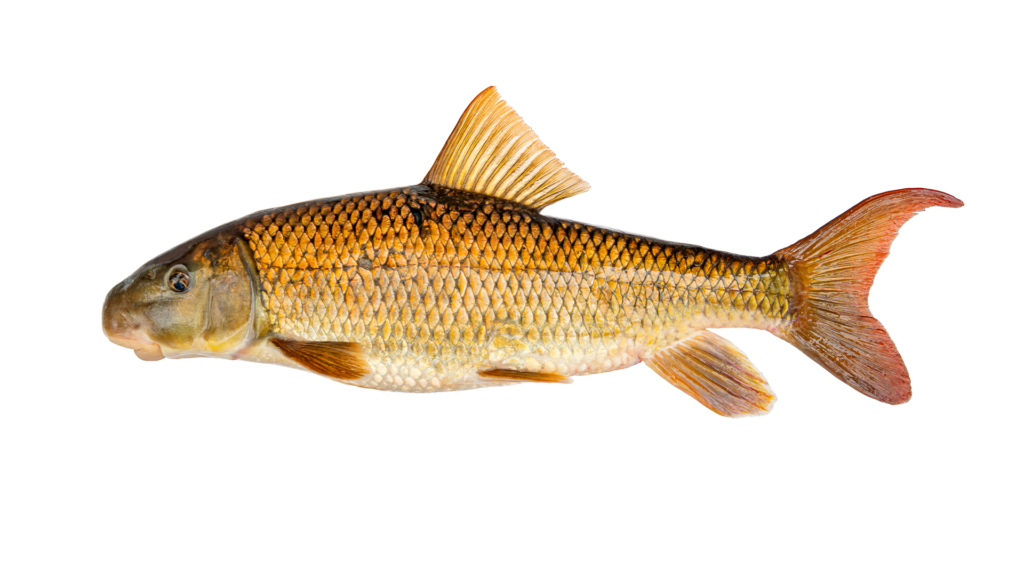
| Family | Scientific Name | Author | Year | Common Name |
| Catostomidae | Moxostoma carniatum | (Cope) | 1870 | River Redhorse |
Moxostoma carinatum
Unique Characters: Circumpeduncle scales modally 12. Pharyngeal arch stout, lower teeth large, molariform. Lips plicate. Head medium or large. Scale bases dark. Upper body dominantly brassy, coppery, or olive in life. Tail red. Snout of breeding males with obvious medium-sized nuptial tubercles. Restricted to Tennessee River drainage basins.
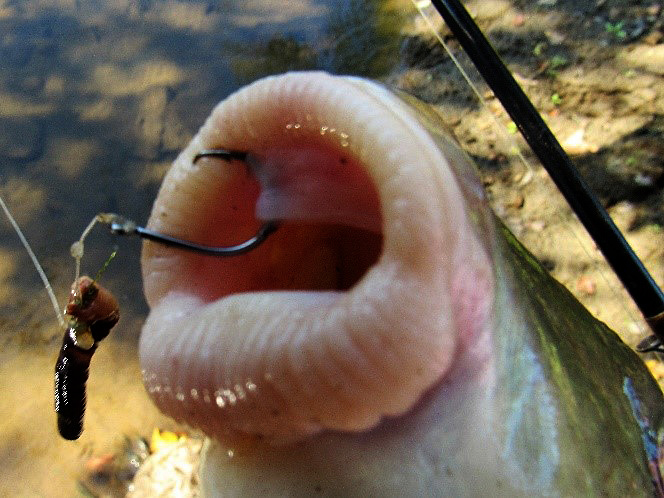
Photo Credit: Tim Aldridge
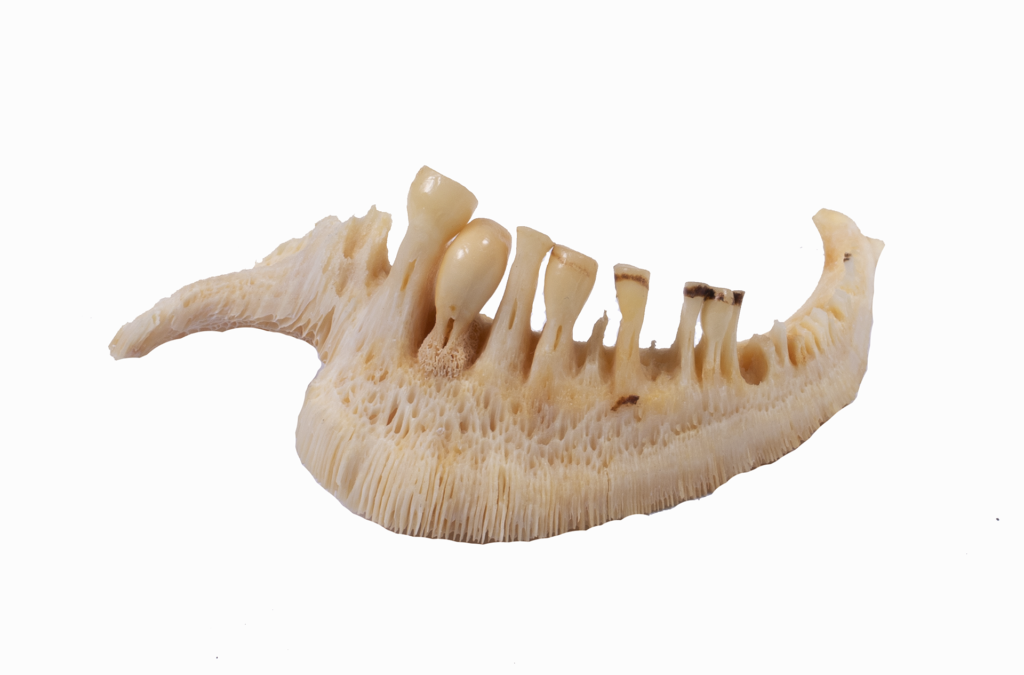
Similar Species:
Black Redhorse
Moxostoma duquesnei
Golden Redhorse
Moxostoma erythrurum
Black Redhorse Moxostoma duquesnei. Circumpeduncle scales modally 12. Lower lip plicate, plicae undissected or with shallow creases. Head medium. Lateral line scales (43)44-48(51). Breast usually with a small scaleless area anteromedial; anteromedial breast scales much smaller than anterior belly scales; breast scales embedded. Angle of posterior edge of lower lip (95)120-160(175)°. Snout of breeding males with minute or no nuptial tubercles.
Golden Redhorse Moxostoma erythrurum. Circumpeduncle scales modally 12. Lower lip plicate, plicae undissected or with shallow creases. Head medium. Lateral line scales (37)39-43(45). Breast usually full scaled, anteromedial breast scales slightly or moderately smaller than anterior belly scales. Angle of posterior edge of lower lip 90-130(155)°. Snout of breeding males with obvious, medium-sized nuptial tubercles. Restricted to Roanoke and Tennessee River drainage basins.
Silver Redhorse
Moxostoma anisurum
“Sicklefin” Redhorse
Moxostoma sp.
Silver Redhorse Moxostoma anisurum. Circumpeduncle scales modally 12. Lower lip V-shaped, semi-papillose; its fine ridges (plicae) deeply, transversely, and somewhat irregularly dissected. Front of upper lip usually smooth, papillae absent. Lower lip usually abruptly thinned at a point distinctly anterior to it juncture with upper lip.
“Sicklefin” Redhorse Moxostoma sp. Circumpeduncle scales modally 12. Dorsal fin margin very falcate, the anterior tip when appressed exceeding the posterior tip, usually markedly.
Gallery
